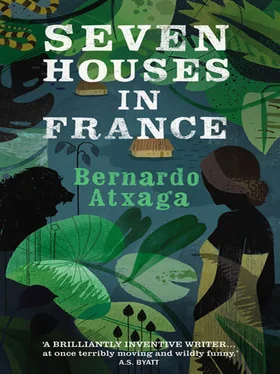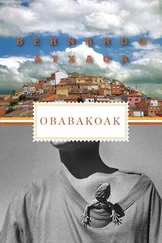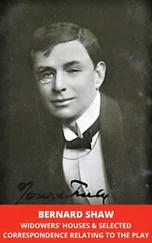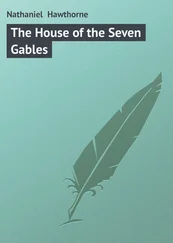‘ O triste, triste était mon âme, à cause d’une femme .’ — ‘Oh, sad, sad was my soul because of a woman.’
He interpreted the line of verse at the top of the letter as a bad omen, and so plunged instead into the body of the text, ignoring his friend’s initial digressions. When he reached the third page, he went into his bedroom, sat down on the edge of the bed and continued reading there. When he had finished, he swore violently.
Toisonet explained in his letter that as soon as he had learned of the King’s plans, he had spoken to the celebrated journalist Ferdinand Lassalle and then gone back to his own room feeling very happy. So happy, indeed, that he sat out on the terrace of his villa, smoking a cigar and laughing to himself.
‘The laughter emerged from my mouth very slowly, and I had the pleasant feeling that it was pouring out of my chest like foam. It was such a gloriously absurd idea, l’américaine in the middle of the Congo, wearing a crown and with the blue flag with its yellow star fluttering beside her. It would seem, however, that I was staking too much on the Other, who decided to snatch that winning card from my hand.’
In Toisonet’s lexicon, ‘the Other’ was God. The letter went on:
The thing is, the Rothschilds gave a party the following week, and the journalists all flocked to the marquee to ask
l’américaine
: ‘How do you feel about becoming the future queen of the Congo?’ She replied that she had absolutely no intention of going to the Congo. ‘But you gave your word to King Léopold II!’ said Ferdinand Lassalle reproachfully. Her delightful, memorable riposte, worthy of Parnassus’s finest, was this: ‘It wasn’t me talking, it was Widow Clicquot.’ That night, on the terrace, smoking my cigar, I laughed again, more loudly than the first time. I somehow didn’t mind losing that particular game.
On the final page of his letter, Toisonet mentioned the consequences of the dancer from Philadelphia’s change of heart. Obviously, the King would not now be going to the Congo either, but he, Toisonet, would come in his place. In fact, a journey was already being organised, its objective being to take a statue of the Virgin to the Stanley Falls, a statue in white marble commissioned by the King from ‘a new Michelangelo’. Mbula Matari would probably travel with them, for the great explorer, aware that he would not be making many more expeditions, wanted to revisit the land that had been the scene of his greatest adventures and to say goodbye to his beloved Africa. Naturally, the boat would stop in Yangambi, not in Kisangani, and they could then hunt that lion together. ‘Especially if you’ve given it a bit of morphine first,’ said Toisonet. ‘My spirit loves sleepy lions.’
Lalande Biran left the letter on the desk and, picking up his chicotte, strode out into the pouring rain and set about the trees in the garden. The rain, falling in torrents from the skies, lashed the man’s face and he, in turned, lashed the trees. Some of them, especially the young palm trees, showed marks and wounds on their bark; others, like the teak and the okoume, survived without a scratch.
He heard a shrill cry and looked up. Most of the jungle was cloaked in rain and mist. The river flowed muddily on, and its islands, usually so green, were black. He could see the equally black mandrills too, three on the beach and about ten near the Club Royal.
There was a short cut from Government House down to the beach. He started running in that direction. The screeches of those vile monkeys was the worst thing about Yangambi, the worst thing about the Congo and about Africa, and he wanted to flay them with his chicotte, to whip them to the bone. He bounded down the first stretch of the path, slithering in the mud, then gradually slowed to a halt. What he was about to do was utterly absurd. He couldn’t whip to death a whole troop of monkeys.
He had heard Donatien say that the monkeys, both chimpanzees and mandrills, recognised the smell of steam from the boat and the sound of its paddles, which was why they hung around on the beach and near the club storeroom, to see if they could make off with a crate or two of food. Apparently, they found the smell of salami particularly exciting. As he walked back up the path, Lalande Biran had to acknowledge that his orderly was quite right.
When he returned to Government House, it seemed to him that the garden was at peace again, and that even the young palm trees, which had borne the brunt of the beating, stood erect and serene. The rain had almost stopped. He could see the jungle again, and the mandrills’ screeching sounded a long way off, as if they had crossed to the other side of the river.
He changed out of his drenched clothes and went into his study to lie on the chaise longue. Gradually, as he calmed down, the images in his head took on a more definite shape. The mandrills he had seen next to the Club Royal appeared in the first image, a scene, he realised suddenly, looking up, almost identical to the one in the picture he had painted shortly after arriving in Yangambi. The second image contained the words with which Christine had finished her letter: ‘Do your best, my love.’ And in the third he saw the photo he had imagined would appear in the article about the royal visit.
He closed his eyes and started correcting the photo. He erased King Léopold and the dancer from Philadelphia and put Mbula Matari in the centre. He placed himself to the right of the explorer and Toisonet to his left. Behind them, as before, stood Chrysostome with his two rifles. And in the background, the journalists. Inevitably, given the changed circumstances, there would not be ten or twelve of them, as he had first imagined, but three or four, from Brussels and the Vatican. Moreover, the mission would consist in transporting the Virgin to the Stanley Falls, and there would be no time for lion-hunts.
The image did not last long. The letter had dealt him a hard blow and, metaphorically speaking, his spirit had been badly bruised. He still couldn’t quite absorb the news Toisonet had given him. And yet, however angry he got, however hard he beat the trees with his chicotte, nothing would change. Reality was what it was, and l’américaine ’s refusal to come to the Congo condemned him to the reality of Yangambi.
‘ Quand la pluie, étalent ses immense traînées, d’une vaste prison imite les barreaux …’ — ‘When the rain, flaunting its long, long train, imitates the bars of a vast prison cell’ — as the Master wrote in one of his poems. His feelings exactly. The days in Yangambi seemed very long to him, especially when the rains came. Sometimes, on Christine’s advice, he tried to find new things with which to occupy himself, but to no avail. He didn’t much like hunting, and drawing seemed an increasingly meaningless occupation. In his letter, Toisonet had made a joke about the Other. Wasn’t he himself the victim of a cruel joke that was condemning him to experience each line of the Master’s poem, word for word? ‘When the earth has become a dank dungeon, from which Hope like a bat flits away …’
He knew that feeling all too well. On many evenings and on many nights, in his dreams, he would see bats fluttering around the palm tree in the square. Doubtless one of them was Hope.
‘Do your best, my love,’ Christine urged, thinking about that house in St-Jean-Cap-Ferrat. But it wouldn’t be easy to divert more mahogany and ivory. The elephants’ traditional route was a long way from Yangambi, at least three days’ march away. As for the mahogany, it grew abundantly near the River Lomami, but required a lot of manpower to fell and transport it, especially in the rainy season; besides, given that Cocó was in charge of the felling, he would have no option but to share the profits with him. That, however, was only part of the problem. The other part was that when he imagined himself in St-Jean-Cap-Ferrat, arm in arm with Christine, he felt no joy at all. Hope wasn’t the only bat fluttering around the big palm tree.
Читать дальше












